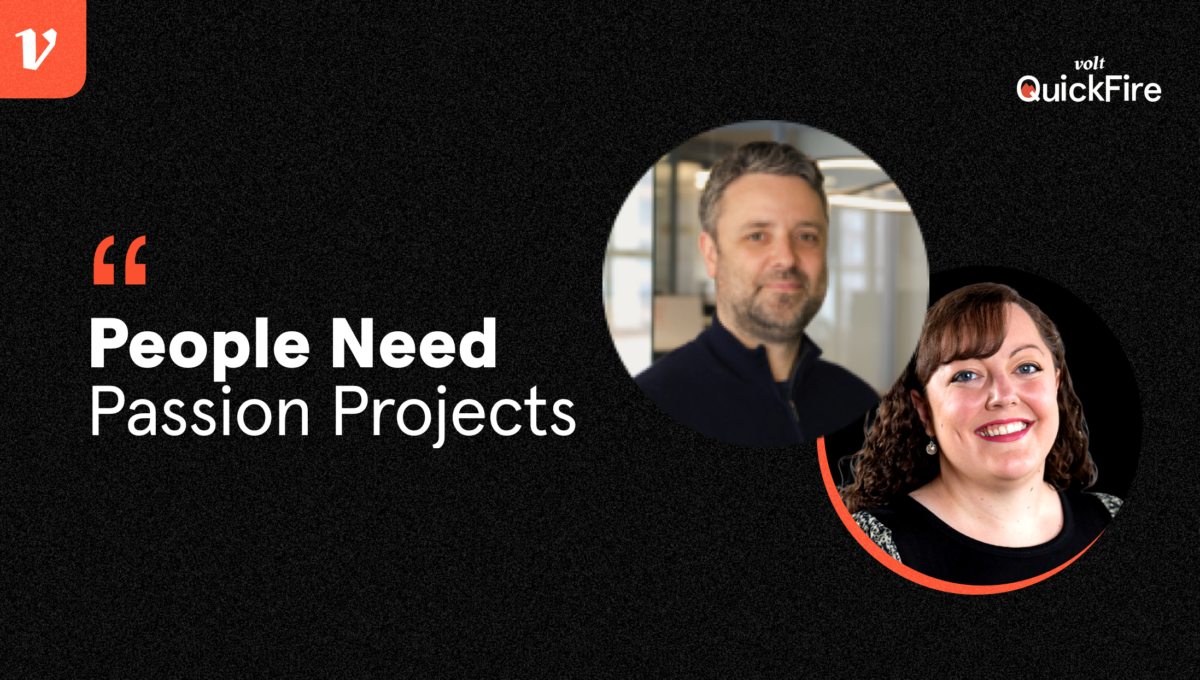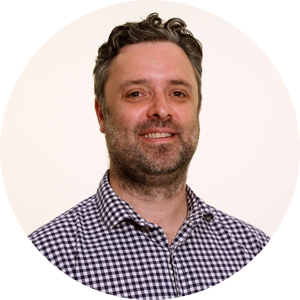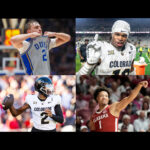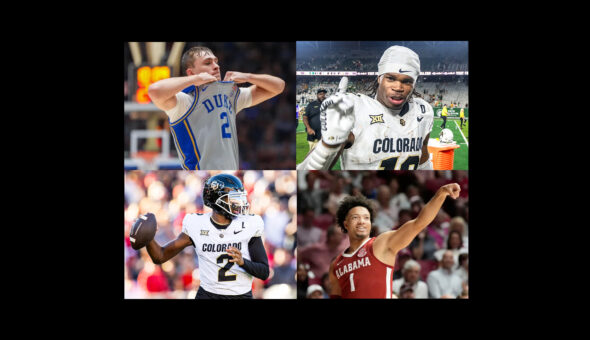Read the full transcript here
Kevin Renton:
Hi there. My name’s Kevin Renton and welcome to QuickFire with Volt. This is where we put higher ed marketers in the hot seat and fire 20 rapid questions to them to work out what makes them tick, what makes them successful, and what their goals are for the future. In the crossfire today, we have Danielle Sewell, Director of Marketing for York College of Pennsylvania. Welcome, Danielle.
Danielle Sewell:
Thank you.
Kevin Renton:
So to start with, what’s your elevator pitch? Give us what you do at York College and what fills your day.
Danielle Sewell:
Sure. I am Danielle Sewell, as you said. I’ve been working in marketing in general for about 12 years now and in higher ed specifically for the past nine years or so. Now, I’m at your college as the Director of Digital Marketing and my major areas of responsibility are content strategy and implementation for our flagship social media channels, as well as the institutional website. So I get to tell stories all day in various ways through different media and help connect everything great that our students are doing and our community’s doing with the world and the rest of the community, and help inspire people hopefully to either feel really proud of being here or to come join us.
Kevin Renton:
Oh, fantastic. I wanted to work in higher education because…
Danielle Sewell:
I believe in the mission of higher education, which sounds a little bit cliche, I guess, but I don’t mean just the college experience. Although, that’s super valuable and not just the teaching students to have marketable skills and jobs, although that’s also really important. I think, in my college experience at least, and I think what I see here at York, is students learning how to learn, how to think, how to problem solve, how to work with people. That’s the thing that over the course of time changes their lives.
Kevin Renton:
The marketing tool I can’t live without is…
Danielle Sewell:
The entire Google Workplace Suite. So I guess I’ll just smuggle in all of those products at once into this one question. We are a Google school, which is fantastic for me since I use those products all the time anyway. I work in a really collaborative environment, so we’re always teaming up with other people for either video projects, photo projects, written projects, and everybody’s constantly giving feedback from different areas. Having that cloud-based opportunity to document changes and requests and talk through things is essential for me.
Kevin Renton:
Okay. My biggest professional achievement is…
Danielle Sewell:
My biggest professional achievement happens anytime a former intern asks me for a recommendation or a letter of reference. I just really love seeing them starting off on their careers and making their mark on the world. Anytime they ask me to be a little bit of a part of that, I think that’s an honor for me. I think it makes me remember why I wanted to do this work and why I continue to do this work. Every time we get to see the students in person, as marketers, we’re a little bit removed sometimes. So having that personal connection and then seeing so directly the way that we’re able to make an impact just lights me up.
Kevin Renton:
Okay. My biggest professional mistake was…
Danielle Sewell:
Probably earlier in my career. I think this happens a lot to higher ed marketers in general, but certainly 10 years ago this was the case where you got hired in as a change maker. Something’s not working or we need to innovate in some way. Being a little more inexperienced then, I probably went in with a list of projects and ideas and things like, let’s get started on this and didn’t stop to take the time to talk to people so much and build those relationships and set a foundation for that change management.
Kevin Renton:
When I’m not working, I’m…
Danielle Sewell:
I am usually hanging out with my husband and our dog. We have an 11 month old pit bull chow mix puppy. So he’s a lot of fun, but a little bit of chaos. I like to read a lot of good books, have a lot of game nights with friends. We live pretty far away from both my family and my in-laws. So for vacation times when we have a stretch of time, you’ll find us traveling to either northern New York or northern Kentucky, which is where our people are. So we’ll try to make efforts to see everybody. We don’t always get to see them in person.
Kevin Renton:
I start my day at…
Danielle Sewell:
I don’t think I’m really a person until I have a cup of coffee. So usually whenever the coffee’s done.
Kevin Renton:
The secret to students exceeding at my school is…
Danielle Sewell:
Finding their person, or their persons, if there’s more than one. I think students get intimidated a lot by the options that they have. We do have a lot of opportunities for them to get involved, but I think sometimes when we talk about involvement on campus, it feels, especially for students who are a little more introverted, a little bit overwhelming. I have to do all of the things and be around all of the people.
At York, I’ve found that we’re small enough that everyone, if they don’t know the answer, they know who to go to get the answer. There are so many people who are passionate and experienced with so many different things that I think there’s truly somebody that every student can connect with either a professor or an RA or a staff member in whatever area that interests them. So if they can find that one person who’s their go-to, I think that makes such a difference. Just having somebody who can be a guide and point them at least in the right direction.
Kevin Renton:
I admire the marketing at…
Danielle Sewell:
Oh, there are so many good higher ed marketing campaigns and things happening now. University of Wyoming is just always coming out with incredible things. Colby College has fantastic video work. Boston College does great things with student created content. Outside of higher ed, the Barbie movie taking over and I think providing a masterclass and in immersive marketing for everybody. Everything Ryan Reynolds does seems to turn to gold, whether it’s aviation, gin, or Deadpool or Wrexham. I think he does a really great job of melding the creative side with the business side, which is really impressive. So yeah, I try to keep an eye on all of it.
Kevin Renton:
Okay. What’s the biggest challenge facing higher ed marketers today?
Danielle Sewell:
The change management piece probably. Higher ed is like a big bureaucratic machine sometimes. We’re complex organizations and that just means that our natural state is to operate a little more slowly. Whereas, particularly for marketers, the space that we’re in, especially on the digital side, is fast paced and changing. If you’re doing things same way in a year from now as you are now, you probably missed something along the way. So I think there’s a natural conflict a little bit, and hopefully healthy tension, but tension when as a marketer you need to present something that is going to change and there’s a little bit of the attitude of, we just changed this a year ago. Why are you asking me again already?
Kevin Renton:
Okay. My favorite social media channel is, and why?
Danielle Sewell:
I’d say Instagram. I’ve got the algorithm there pretty well tuned now, so it shows me mostly cute puppies and Taylor Swift reels, which is a happier place on the internet that I can escape to.
Kevin Renton:
In general then, what do you think is working in higher ed and what do you think is not working?
Danielle Sewell:
Our students are working. I think every generation tends to get a little bit of bad press when they hit their twenties. The millennials got it. Gen Z’s getting it a little bit right now, but these are students from everything I’ve seen who are not here because they feel like college is the natural next step that they have to do after high school. They’re here because they want to be here, they’re motivated, they want to learn, they have a vision of what they want their future to be, and they’re doing really, really incredible work.
Kevin Renton:
What’s not working?
Danielle Sewell:
Trust. I know there have been a lot of pieces out about the erosion of public trust in higher education, and there’s a lot of conflict for a lot of different reasons about that. Ultimately, I think that will take some time to heal. Some of it comes back to the storytelling and that excellent work that our students are doing and helping people to see that we’re making a real difference in student lives, but also having a college in your town or your region is an immense resource for our community.
Telling those stories not only in a PR kind of a way, but in a way that builds connections and relationships with key stakeholders in our communities and our states, and helps people to really experience why a college is an important place. I don’t think historically we’ve done the best job of that as an industry nationwide. So that’s something, I think, we’ll make progress on in the next few years. There’s a lot of attention on it right now, but it’s a gap, for sure.
Kevin Renton:
What do you think the future of higher education will look like?
Danielle Sewell:
Different. I think there’ve been a lot of industries that had a lot of change come at them very quickly with the digital disruption that happened. I think higher ed is already being disrupted, but probably poised to be disrupted even more as an industry, especially with AI doing whatever AI is going to do for the world in the next few years. So it’s hard to say what the future of higher ed will look like, but I think it will look different than what it does now, and that’s okay.
Kevin Renton:
A key to my success has been…
Danielle Sewell:
I would say it’s been empathy. I don’t mean that in, I’m such a nice person way, but I mean more like truly in the ability to imagine yourself in somebody else’s situation at whatever point they are, and then think through what in their space you would need. Then being able to help guide the creation of something to serve that moment.
Kevin Renton:
So what’s the hardest part of your job?
Danielle Sewell:
Definitely having to say no to people sometimes when it serves the goals of the institution overall. We get a lot of asks coming through, and some of them make sense to do, and we’re very happy to provide that. Then some of them are not necessarily in alignment with either strategy or the institutional mission or even what we’re capable of doing at the moment. So I think finding a way to get over my own sense of I really don’t want to have to have this conflict now is part of it.
Also finding a way, I try, whenever possible to not do a hard no, but to really have a conversation enough that I can get to the point of, why are you actually asking for that and what goal are you trying to achieve? Most of the time, there’s another way that we can get to achieve their goal that people don’t always think of, because they’re not working in marketing and communications or the digital space or whatever. That’s not their job, so why would they know that? So it helps to have those conversations, but it’s challenging sometimes to start off with the no. I don’t love doing it, but it’s part of the job.
Kevin Renton:
One thing that you’ve learned when managing a team?
Danielle Sewell:
People need passion projects. It’s really easy, especially with everyone being really busy and things being a faster pace now than I think they’ve been in the past several years. It’s easy to get caught up in the day-to-day task and those things that you need to do to keep the wheels on the bus. Especially for creatives, but for anyone, I think that’s not a super healthy place to stay in long-term.
Ideally, everyone who works here works here because some aspect of their personal values aligned with the personal values of the institution. So where you can find a project that needs to be done anyway that somebody can feel really excited about and take some ownership over and have something to work a little bit more in depth of, that’s out of the norm of their normal day-to-day tasks, I think that’s really helpful. No one should go too long without a passion project.
Kevin Renton:
I totally agree with you. I think it’s invaluable, but such a necessity to have your team working on things that they’re passionate about, because you just can’t generate that energy.
Danielle Sewell:
Right, and you get better work out of it.
Kevin Renton:
Yeah, I totally agree. Anyway, thank you for spending time with us.
Danielle Sewell:
Thank you.
Kevin Renton:
You being the star. We’ve got through the questions. So great, thank you for being with us.
Danielle Sewell:
Thank you so much for having me.
Kevin Renton:
Not at all.








